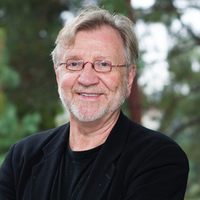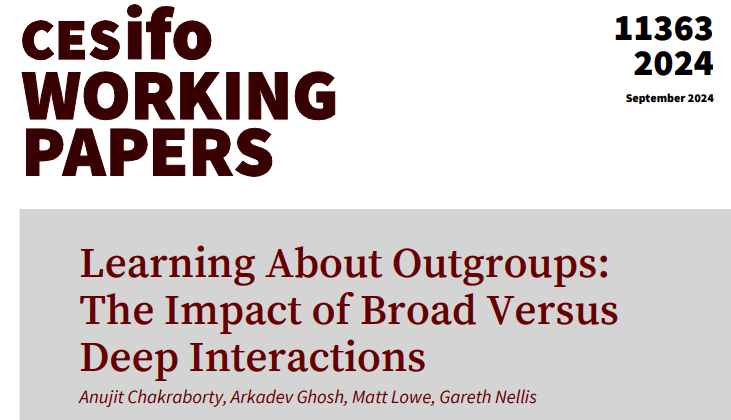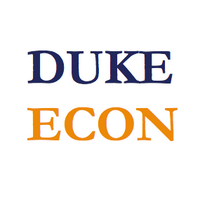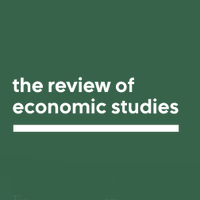
Arkadev Ghosh
@arkdevghosh
Assistant Professor of Economics, @DukeEcon.
ID: 1225896803792375808
http://arkadevghosh.com 07-02-2020 21:39:17
351 Tweet
693 Takipçi
380 Takip Edilen

Come work with Anahita Karandikar, Jeff Weaver, and me on a project measuring social norms and discrimination in rural India. We are looking for one India-based full-time Senior Research Associate (SRA) and one full-time Research Associate (RA), starting on or after 1st August 2024.



🚀 Help us spread the word! 🚀 Are you early-career? ✅ Is your work in or related to behavioral economics? ✅ Then don’t miss the chance to apply for the ECBE 2025 at FAIR FAIR-The Choice Lab in beautiful Bergen, June 19-20, 2025! Application deadline: December 15, 2024.


Learning About Outgroups: The Impact of Broad Versus Deep Interactions | Anujit Chakraborty Arkadev Ghosh Matt Lowe Gareth Nellis #econtwitter cesifo.org/en/publication…



Economists interested in gender norms typically focus on norms that constrain the behaviour of women. But what about those that constrain men? Ieda Matavelli is spearheading this work on masculinity norms, and she is on the job market this year (iedamatavelli.com). A 🧵





Prof. Arkadev Ghosh discusses how his research bridges the gaps between religions in India in a new piece by Trinity College at Duke . trinity.duke.edu/news/fostering…


Delighted that our paper has found a home at The Review of Economic Studies!

Recently accepted to #REStud, "Trauma at School: The Impacts of Shootings on Students’ Human Capital and Economic Outcomes," from Cabral, Bokyung Kim, Maya Rossin-Slater, Schnell and Schwandt: restud.com/trauma-at-scho… #Econtwitter #Trauma #HumanCapital #SchoolShooting





![Priyoma Mustafi (@priyomam) on Twitter photo On the #EconJobMarket !
🚨 JMP Alert 🚨
Individuals fail to incorporate information held by their spouses. Is it because they are generally reluctant to learn from their spouse?
In my #JMP, I show: NO! Because communication is challenging in the absence of expertise.
🧵[/10] On the #EconJobMarket !
🚨 JMP Alert 🚨
Individuals fail to incorporate information held by their spouses. Is it because they are generally reluctant to learn from their spouse?
In my #JMP, I show: NO! Because communication is challenging in the absence of expertise.
🧵[/10]](https://pbs.twimg.com/media/Gc2yQtMaAAAXgLP.jpg)



